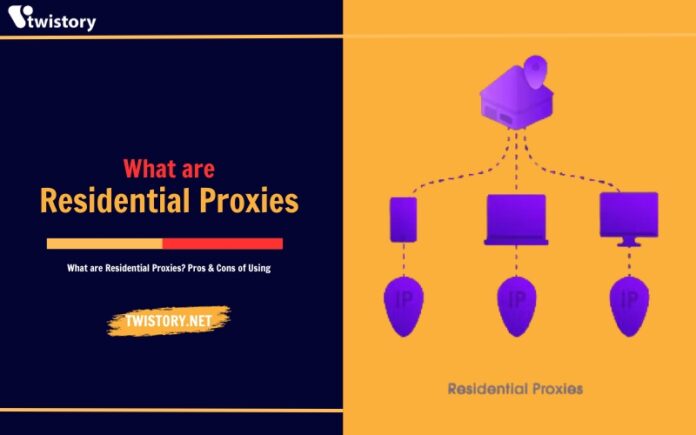In the midst of striving for successful online marketing campaigns, battling against fraudsters can be a significant distraction. Ad fraud is particularly troublesome as it not only drains your resources but also because fraudsters continually devise new methods to swindle businesses and evade repercussions. One such tool that has been adopted by some fraudsters is the residential proxy. So, What are residential proxies? And how does it relate to ad fraud?
What are residential proxies?
Residential proxies are essentially a vast network of genuine IP addresses provided by Internet Service Providers (ISPs). This network allows you to use its IP addresses as a shield when browsing the internet. These IP addresses are typically associated with specific geographical locations and can range in size from local networks to global ones.
>> Explore more: What Is Proxy Server? How Does It Work & What Are Its Benefits?
How do residential proxies work?
Residential proxies function as intermediaries between your devices and the websites you wish to access. They assist in maintaining your anonymity by concealing your identity and location while you browse the internet. Essentially, a residential proxy borrows an IP address from a pool of proxies and assigns it to you, allowing you to assume any identity, anywhere in the world. It’s quite fascinating, isn’t it?
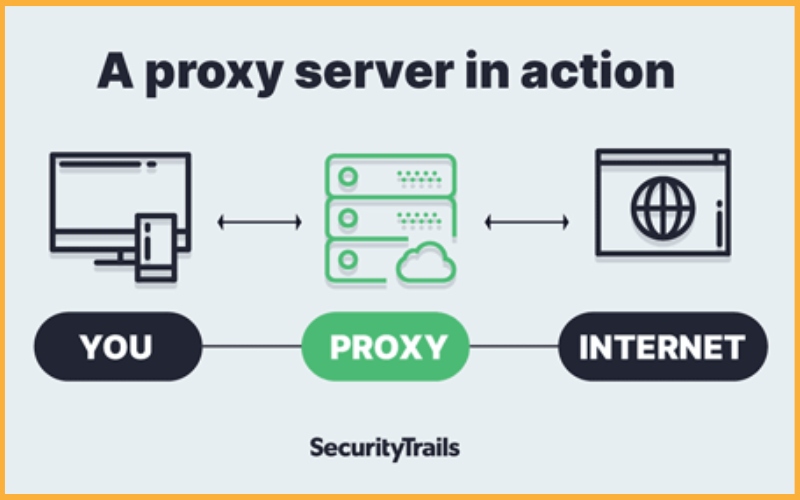
Main Use Cases of Residential IP Addresses
Residential IP addresses have a wide range of applications, some of which are beneficial, while others can unfortunately be exploited for illicit activities. Here are the main use cases:
- Social Media Management: In today’s digital marketing landscape, social media plays a crucial role. Residential proxies enable the operation of multiple social media accounts on a single device.
- Market Price Monitoring: If your business is customer-centric, residential proxies can be beneficial. They allow for easy data collection, price trend monitoring, and compliance, all aimed at retaining customers.
- Cybersecurity Penetration Testing: Cybersecurity firms employ various encryption techniques, including residential proxies, to conceal IPs. A cybersecurity penetration test simulates real-world scenarios and tactics used by cybercriminals.
- Web Data Scraping: Companies utilize residential proxies for the purpose of gathering data and keeping an eye on their competitors. The continuous rotation of IPs allows for the gathering of vast amounts of information.
- Ad Verification: Residential proxies are significant in media monitoring as they enable the checking and verification of ads displayed on your page. This includes identifying and blocking suspicious ads that could harm your business’s reputation.
- Site Unblocking: Numerous service providers impose geo-restrictions on content and websites, making them accessible only from specific parts of the world. Residential proxies allow you to access them without being flagged or blocked, especially in countries where free access to information is restricted.
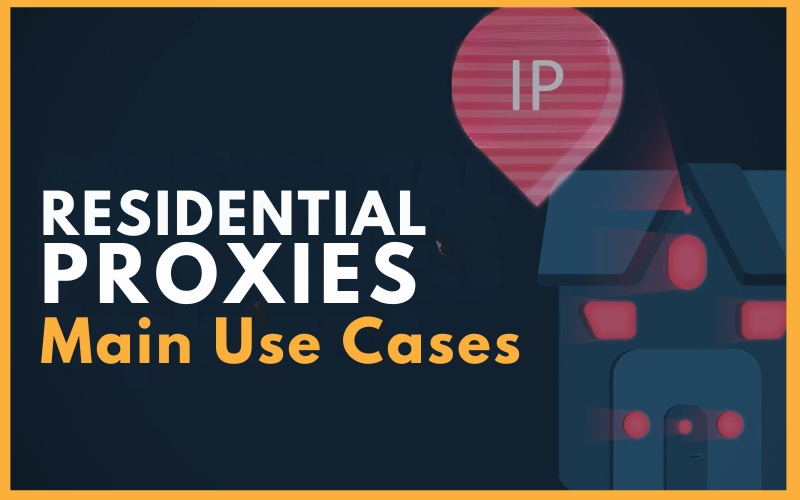
Are residential proxies legal?
Yes, residential proxies are legal. They are a tool for individuals to browse the internet safely and anonymously. For businesses, residential proxies are beneficial for competitor monitoring, market research, and brand reputation protection.
>> Explore more: What Is Envoy Proxy? The Secret to Microservices Success
What are the types of residential proxies?
Residential proxies come in various types, each serving a specific purpose. Here are some of them:
- Shared Residential Proxies: These are cost-effective, making them one of the most affordable options in the market. They offer decent speed due to their robust network architecture. However, they are less secure and reliable than other types and are often blocked by websites more frequently than dedicated residential proxies.
- Dedicated Residential Proxies: If you prioritize privacy and security, dedicated residential proxies are an excellent choice. They provide high speeds and reliable connections. However, their setup is more complex, and they are generally more expensive.
- Mobile Residential Proxies: These proxies offer a similar level of privacy and security as dedicated residential proxies but access websites using mobile IP addresses. The main drawback of mobile residential proxies is that they are blocked more frequently than other proxy types.
- Rotating Residential Proxies: These proxies operate differently by rotating IP addresses randomly after a certain period, making them harder to detect. This rotation method makes them one of the safest proxies on the market, but they are also more expensive.
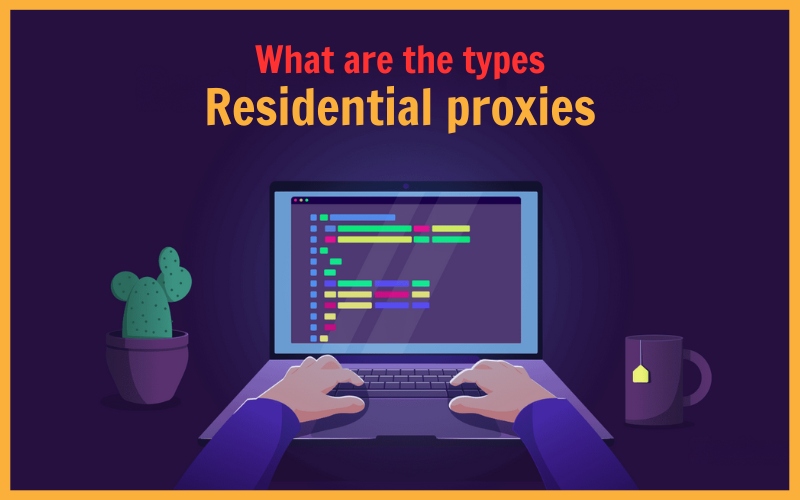
What are the pros and cons of residential proxies?
Residential proxies, like all proxies, come with their own set of advantages and disadvantages.
Pros:
- Online Anonymity and Privacy: Residential proxies allow users to conceal their IP addresses and virtual location, resulting in enhanced online privacy and anonymity.
- Corporate Network Protection: They safeguard corporate networks from various online threats without the need for costly hardware.
- Reduced Risk of IP Blocking and Blacklisting: Residential proxies are less likely to be identified as proxies by various websites, resulting in fewer instances of blocking.
- Access to Geo-Restricted Content: Residential proxies enable users to securely access restricted content while traveling by altering their IP addresses and virtual location. This makes residential proxies popular in countries where individual human rights are limited or restricted.
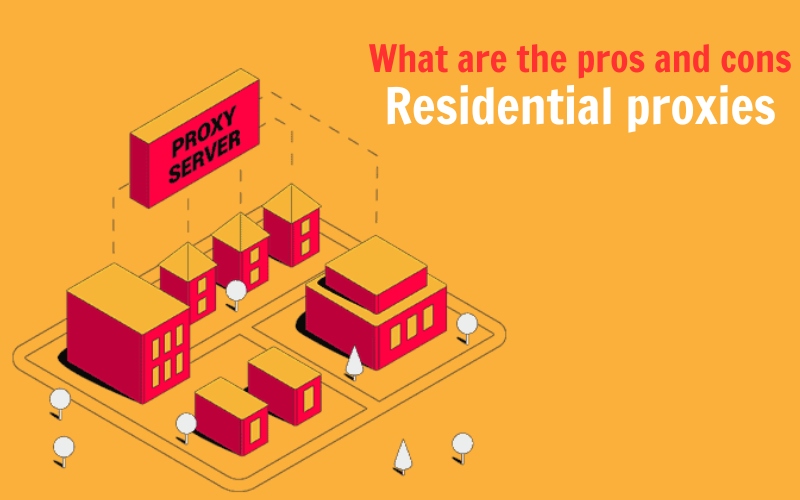
Cons:
- Lack of Encryption: Proxy servers only replace your IP address and do not offer full encryption, unlike VPNs.
- Speed Reduction: Residential proxies may have slower speeds than other types of proxies as they depend on the internet speed of the assigned IP address.
- Cost: Residential proxies are more expensive compared to data center proxies.
- Complexity of Configuration: Some residential proxy servers are complex and require expertise to configure, often under the supervision of an IT specialist. This comes at a cost.
- Limited Availability: Proxy servers are unavailable in some regions and countries due to legal regulations.
- Legality: Certain activities conducted through residential proxies, such as web data scraping, are considered illegal in some regions. It’s essential to understand local laws and regulations before performing such tasks.
What are the main differences between datacenter and residential proxies?
While both datacenter and residential proxies serve the purpose of masking IP addresses online, they function in slightly different ways.
Datacenter Proxies are generated in large facilities equipped with multiple servers, known as data centers. This “brick and mortar” model offers advantages such as high speeds.
Residential Proxies, on the other hand, are IP addresses assigned to existing homes. They rely on specific homes and Internet Service Providers (ISPs), and can be slower than datacenter proxies. However, residential proxy IP addresses are less likely to be flagged as suspicious because they originate from residential locations.
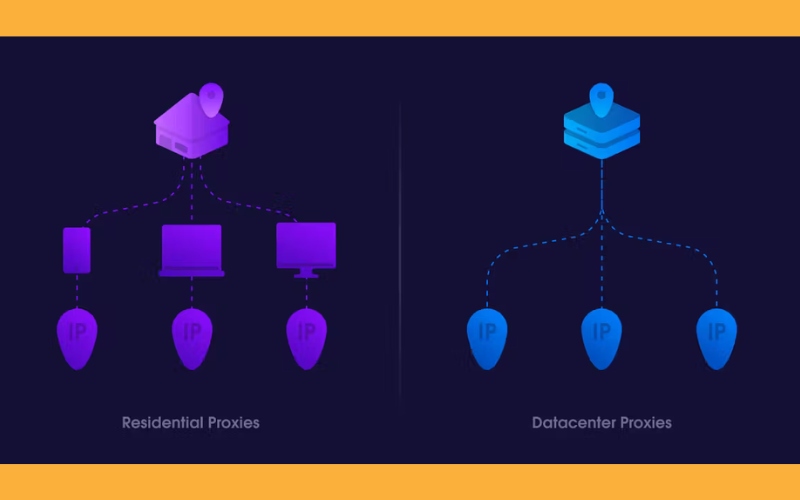
Here’s a comparison of their features:
| Features | Residential Proxies | Datacenter Proxies |
| IP Rotation | Rotating or multiple IPs | Static or fixed IPs |
| Anonymity and Privacy | Harder to block | Easier to block |
| Speed | Medium | Faster than residential proxies |
| Cost | More expensive than datacenter proxies | Cost-friendly |
| Suited For | Brand protection, review monitoring, web scraping for marketing research | Ad verification, SEO monitoring, bypassing censorship |
| Source IP | ISP (Internet Service Provider) | Data centers, cloud |
Factors to Consider When Selecting a Residential Proxy Provider
When choosing the best residential proxy provider, there are several factors to consider:
- Purpose and Use: The first question to ask is why you need proxies. If you’re looking for basic online anonymity and small-scale data scraping, datacenter proxies might be suitable. However, if you want better anonymity and overall security, residential proxies might be a better fit.
- Budget: Residential proxies can be expensive. Fortunately, many providers offer reasonable deals. It’s advisable to compare prices online to get the best value for your money.
- Geo-Targeting: If you’re choosing residential proxies for business, consider your geo-targeting needs. Residential proxies can help bypass geo-restricted websites and securely unlock content worldwide while traveling.
- Compatibility with Automation Tools: If site optimization is your goal, check if the residential proxy plan supports SEO automation tools.
- Speed and Latency: Your online activities may influence your connection due to the potential impact of residential proxies. Better loading speed and lower latency are always preferable for web data scraping and other data collection activities.
- Support and Reputation: Excellent service is crucial when choosing a residential proxy provider, especially since some plans and packages can be expensive. Look for providers that offer excellent customer service and have a good industry reputation.
Conclusion
Residential Proxies are a powerful tool that allows you to access the internet anonymously, protecting your personal information and data. However, their use also comes with certain drawbacks such as high costs and potential for misuse. Before deciding to use Residential Proxies, carefully consider the benefits and risks.
For more detailed and useful information on Residential Proxies and many other topics, please visit twistory.net. We constantly update with the latest and most useful information for you. Follow us to not miss any important information!
>> See more related articles:

